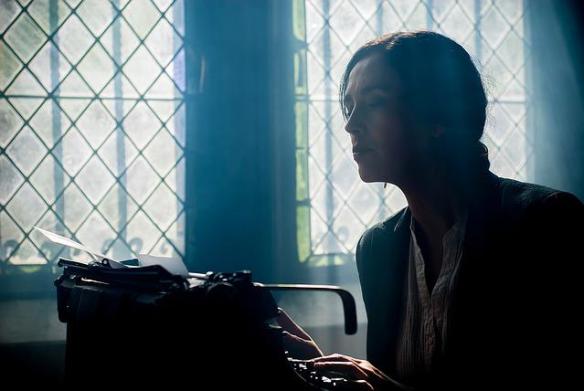
Author, teacher, and literary agent Donald Maass recently wrote a thought-provoking essay in Writer Unboxed in which he makes a distinction between “theme” and “meaning” in a novel. I’ve written about theme before, specifically, whether a writer should set out to create a book around a certain theme and how hard that can be to pull off, because it focuses the writer on an abstract concept, when creating a story is the dominant concern. At least that’s true for novels written for US and UK audiences. Characters in novels translated from other languages often seem to wander in some misty realm without reference to the concrete world of, say, peanut butter sandwiches, and perhaps it’s because they’re written to theme. Just a guess here.
The theme of my mystery/thriller, Architect of Courage, is redemption, which I discovered embarrassingly late in the game. And now that it’s printed and has covers around it, I am still recognizing minor themes. These likely reflect attitudes and beliefs so ingrained that I don’t consciously think about them, but that come out nonetheless.
According to Maass, a novel with a theme “points out something we must heed about ourselves and our world,” whereas a novel focused on meaning aims to “tell us who and how we are.” Or, as he says, it’s descriptive, not prescriptive. Genre novels (mysteries, thrillers, romance) tend to be of the former type, and coming-of-age stories and historical fiction tend toward the latter.
It’s easy to think of examples of both. On one hand, the theme of books like Razorblade Tears (SA Cosby) and many police procedurals is that justice is being done, while the theme of The Water-Knife (Paolo Bacigalupi) and The Cartel (Don Winslow) is the urgent need to put things right before it’s too late. On the other hand, “meaning” books, like The Ones We Keep (Bobbie Jean Huff) and The Great Alone (Kristin Hannah) describe life as it is, sort of, with all its bumps and distortions and wierdnesses.
This distinction is worth thinking about, but as to how it affects the reader, Maass further suggests that the thematic approach is like being told something, and the meaning approach is like sharing something. “Literary” fiction mostly camps out in meaning territory and disdains genre fiction’s tidy endings, whereas genre writers defend their approach, saying that at least their stories have an ending.
While I’m persuaded Maass has articulated an interesting distinction, perhaps it shouldn’t be interpreted too rigidly, too either-or. For one thing, authors are wholly capable of bait-and-switch. For most of their pages, Where the Crawdads Sing (Delia Owens) and Atonement (Ian McEwan) seems like coming-of-age “meaning” books, and only at the very end do you discover they’ve upended the “justice will be done” theme. Currently, I’m listening to My Heart Is a Chainsaw, by horror-writer Stephen Graham Jones, and I would be hard-pressed to place it in either category. Can’t I choose both?
Good writing deserves good readers. My quarterly newsletter contains tips for reading, writing, and viewing. Sign up here and receive three prize-winning short stories!

I see theme as the grim realities of life/the world and a fair-to-middling writer should be able to impress us with these caveats at points throughout the story. Oftentimes, it’s a little more cerebral in context and something maybe on the author ever appreciates to its fullest. Meaning? Who knows, really. But a good answer might be “meaning should give us pause, something to think about.”
I agree with the “something to think about” idea. Not everyone will respond in that way, but I for one hope for more with my writing than just a momentary diversion. (What hubris!)